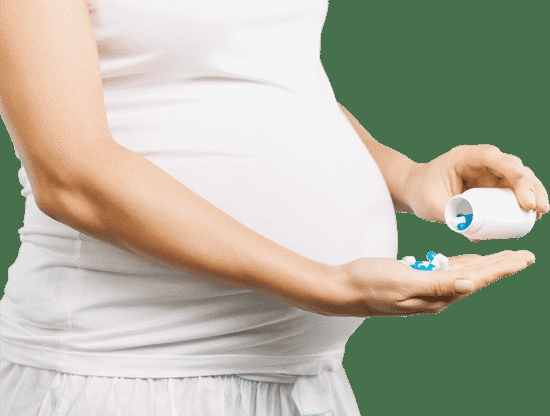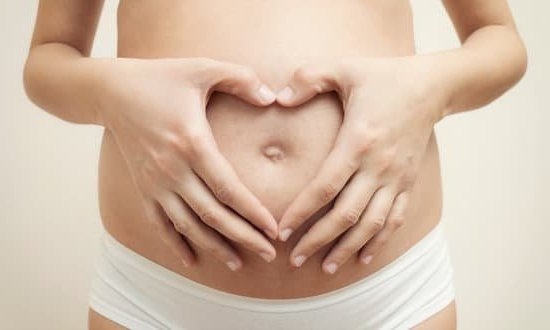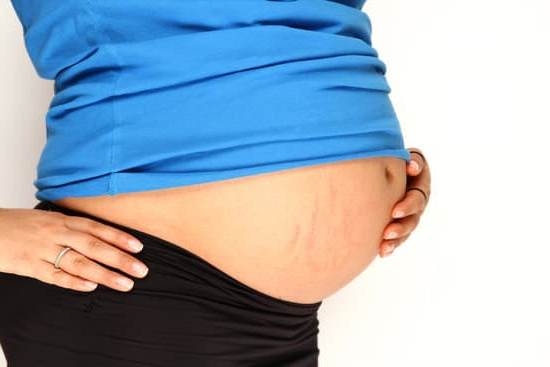Are you wondering, “how long after ovulation can you take a pregnancy test?” Ovulation, the release of an egg from the ovary, typically occurs around day 14 of a woman’s menstrual cycle. After ovulation, the egg is viable for fertilization for about 12-24 hours. If fertilization occurs, the embryo starts producing human chorionic gonadotropin (hCG), the pregnancy hormone.
Understanding the menstrual cycle is crucial when determining when to take a pregnancy test. Most at-home pregnancy tests work by detecting hCG levels in urine. It takes time for hCG levels to build up in the body after conception. Therefore, it is recommended to wait until after you have missed your period or about 1-2 weeks after ovulation to take a pregnancy test for accurate results.
Timing plays a critical role in the accuracy of a pregnancy test. Taking a test too early may result in a false negative. Factors such as irregular periods, tracking ovulation inaccurately, or certain medications can also affect the reliability of the test. Knowing when and how to take a pregnancy test can help alleviate anxiety and provide clear answers regarding potential pregnancy.
How Pregnancy Tests Work and Detecting hCG Levels
Pregnancy tests work by detecting the hormone human chorionic gonadotropin (hCG) in a woman’s urine or blood. hCG is produced by the placenta after the embryo attaches to the uterine lining, which typically occurs about 6-12 days after fertilization. This hormone can be detected in a pregnant woman’s body as early as 7-10 days after conception.
When it comes to how long after ovulation you can take a pregnancy test, it is recommended to wait until at least one day after your missed period for the most accurate results. However, some early response pregnancy tests claim they can accurately detect hCG levels before your missed period, even as early as 7 days post-ovulation.
Keep in mind that taking a pregnancy test too early may result in a false negative due to low levels of hCG being present at that time.
| Pregnancy Test Type | Detection Timeframe |
|---|---|
| Standard Urine Test | After Missed Period |
| Early Response Test | As Early as 7 Days Post-Ovulation |
The Ideal Time to Take a Pregnancy Test After Ovulation
After ovulation, the ideal time to take a pregnancy test depends on various factors such as the length of your menstrual cycle and when implantation occurs. It is important to understand that a pregnancy test detects the hormone hCG (human chorionic gonadotropin) in your urine, which is only produced once a fertilized egg has implanted in the uterus. Generally, it is recommended to wait at least 14 days after ovulation to ensure accurate results.
Here are some guidelines on how long after ovulation you can take a pregnancy test:
- If you have a regular 28-day menstrual cycle, you can take a pregnancy test about 14 days after ovulation.
- For longer cycles, such as a 30 or 32-day cycle, you may want to wait until 16 or 18 days after ovulation.
- If you are unsure about when you ovulated, consider waiting until the day of your missed period to take a pregnancy test for more reliable results.
It’s important to remember that taking a pregnancy test too early can result in a false negative, as hCG levels may not be high enough to detect. Waiting until the recommended time frame increases the likelihood of an accurate result.
Additionally, using an early detection pregnancy test can help detect lower levels of hCG earlier than traditional tests. If you receive a negative result but still suspect pregnancy, it is advisable to wait a few more days and retest or consult with your healthcare provider for further guidance.
Early Signs of Pregnancy to Look Out For
During the early stages of pregnancy, there are several signs and symptoms that women can look out for before taking a pregnancy test. While these signs may vary from person to person, here are some common early indicators of pregnancy:
- Missed Period – One of the most classic signs of pregnancy is a missed period. If your menstrual cycle is regular and you have missed a period, it could be an indication to take a pregnancy test.
- Fatigue – Feeling more tired than usual is a common symptom in the early weeks of pregnancy. Your body is working hard to support the growing fetus, which can lead to increased fatigue.
- Nausea and Morning Sickness – Many women experience morning sickness, which can occur at any time of the day. This nausea can be triggered by certain smells or foods and typically subsides after the first trimester.
It is important to note that these symptoms can also be attributed to other factors such as stress or illness, so it’s essential not to rely solely on them when determining if you are pregnant. For a definitive answer, taking a pregnancy test is the best course of action. So, how long after ovulation can you take a pregnancy test?
Typically, it is recommended to wait at least 10-14 days after ovulation before taking a pregnancy test for accurate results. This waiting period allows enough time for the hormone hCG (human chorionic gonadotropin) to build up in your system if you are pregnant. Testing too early may result in a false negative, leading to confusion and disappointment.
Factors That Can Affect the Accuracy of a Pregnancy Test
Many women may wonder about how long after ovulation can you take a pregnancy test to get accurate results. The accuracy of a pregnancy test can be affected by several factors, including the sensitivity of the test, the concentration of hCG in your urine, and when implantation occurs. Generally, it is recommended to wait until at least one week after your missed period to take a pregnancy test for reliable results.
One factor that can impact the accuracy of a pregnancy test is the sensitivity of the test itself. Most home pregnancy tests are designed to detect hCG levels in urine at a certain threshold. Some tests are more sensitive and can detect lower levels of hCG earlier than others. Therefore, using a highly sensitive test may allow you to detect pregnancy sooner than less sensitive tests.
Another important consideration is the concentration of hCG in your urine. In the early stages of pregnancy, hCG levels double every 48-72 hours, making it crucial to test with first-morning urine when hCG levels are more concentrated. Additionally, drinking excessive fluids before taking a pregnancy test can dilute hCG levels in your urine, potentially leading to false-negative results.
The Different Types of Pregnancy Tests Available
When it comes to taking a pregnancy test after ovulation, it is essential to understand the different types available. The most common types of pregnancy tests include urine tests and blood tests. Urine tests are typically purchased over the counter at pharmacies and can be taken in the comfort of your own home.
These tests work by detecting the presence of human chorionic gonadotropin (hCG) hormone in your urine, which is produced during pregnancy. On the other hand, blood tests are usually conducted at a healthcare provider’s office and can detect lower levels of hCG earlier than urine tests.
Urine pregnancy tests come in two main forms: traditional strip or midstream tests and digital tests. Traditional strip or midstream tests involve collecting a urine sample in a cup and then dipping a test strip into the liquid or holding it directly in the stream of urine.
Digital tests, on the other hand, provide a result on a digital display screen rather than relying on interpreting line colors. Both types have their pros and cons, with digital tests being easier to read but typically more expensive than traditional ones.
In addition to these common types of pregnancy tests, there are also early detection pregnancy tests that claim to provide accurate results even before your missed period. However, it is crucial to note that while these early detection tests may be able to detect lower levels of hCG sooner, they may not always be as accurate as waiting until after your missed period.
It is recommended to follow the instructions provided with each test carefully for best results, regardless of the type chosen.
Tips for Taking a Pregnancy Test for Best Results
When it comes to taking a pregnancy test for best results, there are a few key tips to keep in mind. One of the most important factors to consider is timing. It is essential to wait until after ovulation to take a pregnancy test for the most accurate results.
Typically, the ideal time to take a pregnancy test is about two weeks after ovulation. This allows enough time for the pregnancy hormone hCG to build up in your system and be detected by the test.
Use a First Morning Urine Sample
For the most accurate results, it is recommended to use your first morning urine sample when taking a pregnancy test. This is because the concentration of hCG is typically highest in the morning, making it easier for the test to detect. If you cannot wait until the morning, try to hold your urine for at least 4 hours before taking the test to ensure accurate results.
Read and Follow Instructions Carefully
It may seem straightforward, but reading and following the instructions that come with your pregnancy test is crucial for obtaining reliable results. Make sure you understand how long after ovulation can you take a pregnancy test using that specific brand, as timelines may vary between different tests. Additionally, be mindful of how long you should wait before checking the results and what constitutes a positive or negative result.
Avoid Drinking Excessive Fluids Before Testing
While it’s important to stay hydrated, consuming excessive fluids right before taking a pregnancy test can dilute your urine and potentially affect its accuracy. Try to avoid drinking large amounts of liquid before testing to prevent false-negative results. If you’re unsure about when is the best time for you individually based on your cycle or symptoms, consider consulting with a healthcare provider for guidance on when to take a pregnancy test for optimal accuracy.
What to Do if You Receive a Negative Result but Still Suspect Pregnancy
Reasons for False Negative Results
There can be several reasons why you may receive a negative result on a pregnancy test even if you suspect that you are pregnant. One common reason is testing too early after ovulation.
If the levels of hCG (the hormone detected in pregnancy tests) in your urine are still too low, the test may not be able to accurately detect it. Other factors such as improper usage of the test, dilution of urine, or expired test kits can also lead to false negative results.
Waiting Period After Ovulation
To increase the accuracy of your pregnancy test, it is recommended to wait at least 1-2 weeks after ovulation before taking a test. This waiting period allows hCG levels to rise high enough to be detected by the test. The timing may vary depending on your menstrual cycle and when fertilization occurred, so it’s crucial to track your cycle and ovulation date precisely to determine the best time for testing.
When to Retest
If you receive a negative result but still suspect pregnancy due to symptoms or other factors, it is advisable to wait a few more days before retesting. Waiting another week after the first test can increase the accuracy of the results. If you continue experiencing symptoms of pregnancy but still receive negative results on multiple tests, consider consulting with a healthcare provider for further evaluation and possibly a blood test for hCG levels.
Seeking Medical Advice if Unsure of the Results or Experiencing Unusual Symptoms
After understanding how ovulation works and the mechanics of pregnancy tests, it is important to consider the timing of taking a pregnancy test after ovulation. The ideal time to take a pregnancy test is about 7-14 days after ovulation, as this allows for enough time for the hormone hCG to build up in your system if you are indeed pregnant.
It is crucial to wait until this window period for the most accurate results, as testing too early can lead to false negatives.
While waiting for the opportune moment to take a pregnancy test, there are some early signs of pregnancy that you can keep an eye out for. These signs may include fatigue, breast tenderness, nausea, frequent urination, and more. It’s essential to listen to your body and pay attention to any unusual symptoms you may be experiencing, as these could be indicative of early pregnancy.
If you have taken a pregnancy test after the recommended time frame and received a negative result but still suspect that you may be pregnant due to persistent symptoms or other reasons, it is crucial to seek medical advice. A healthcare provider can provide further guidance on next steps, conduct a more sensitive test, or investigate any underlying causes of your symptoms.
Remember that it is always better to consult with a medical professional for personalized advice and support in such situations.
Frequently Asked Questions
How Many Days After Ovulation Can I Test for Pregnancy?
The general recommendation is to wait at least 10-14 days after ovulation before taking a pregnancy test. Testing too early may result in a false negative due to low levels of the pregnancy hormone hCG.
Can You Take a Pregnancy Test 7 Days After Ovulation?
It is possible to take a pregnancy test 7 days after ovulation, but it may be too early for accurate results. Waiting until closer to your expected period or at least 10-14 days post-ovulation can increase the accuracy of the test.
How Soon Will a Pregnancy Test Read Positive?
Some sensitive pregnancy tests can detect the hormone hCG as early as 7-10 days after conception, which is typically around the time of your missed period. However, for best results, it is advisable to wait until after you have missed your period to avoid potential false negatives.

Welcome to my fertility blog. This is a space where I will be sharing my experiences as I navigate through the world of fertility treatments, as well as provide information and resources about fertility and pregnancy.





